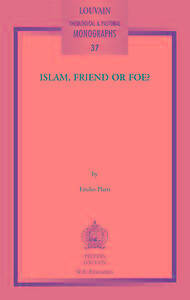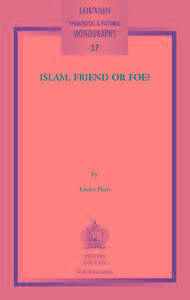
- Afhalen na 1 uur in een winkel met voorraad
- Gratis thuislevering in België vanaf € 30
- Ruim aanbod met 7 miljoen producten
- Afhalen na 1 uur in een winkel met voorraad
- Gratis thuislevering in België vanaf € 30
- Ruim aanbod met 7 miljoen producten
Zoeken
Omschrijving
In this study, Emilio Platti dares to enquire directly into the compatibility between Islam and Christianity, as well as between Islam and modernity. He insists that the best way to answer such questions is to return to the origins of the Islamic tradition. What precisely does the Qur'an have to say about Christians? How can we explain the resentment towards the 'West' that seems to characterize some Muslims? Does the so-called clash of civilizations have its roots in Islamic theology? How did the negative portrait of Muslims that was characteristic of the Latin Middle Ages come about? Is it possible to speak in a 'monolithic' fashion about Islam? Is it really the case that Muslims must set about developing a new identity? What is the relationship between Islamic law and modern theories of human rights? What does it mean to be a 'believer' and might this not be the real heart of the tensions and controversies that mark so much of the contemporary encounter between Islam and the West? Platti's study engages both classical and contemporary readings of the Islamic tradition and offers a nuanced and challenging view not only of its past, but of its present and of the directions it might take in the years ahead.
Specificaties
Betrokkenen
- Auteur(s):
- Uitgeverij:
Inhoud
- Aantal bladzijden:
- 267
- Taal:
- Engels
- Reeks:
- Reeksnummer:
- nr. 37
Eigenschappen
- Productcode (EAN):
- 9789042920569
- Verschijningsdatum:
- 31/01/2008
- Uitvoering:
- Paperback
- Formaat:
- Trade paperback (VS)
- Afmetingen:
- 140 mm x 218 mm
- Gewicht:
- 362 g

Alleen bij Standaard Boekhandel
+ 40 punten op je klantenkaart van Standaard Boekhandel
Beoordelingen
We publiceren alleen reviews die voldoen aan de voorwaarden voor reviews. Bekijk onze voorwaarden voor reviews.











